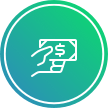.png)
Learning Equality
Through our Kolibri platform, we bring digital educational resources and tools for pedagogical support to low-bandwidth and low resource contexts.
Mika’iila is a 9-year-old boy who struggled at school for years. He was discouraged and believed he was unable to learn. His literacy skills flourished when he was introduced to our Kolibri platform, localized to his native language, Fulfulde Mboroore. Being able to sharpen his math skills and read books in his mother tongue helped Mika’iila receive the top score in his class for the very first time upon retaking the Class 3 end-of-year exam!
Financials
Programs
Nalanda Project
The Nalanda Project is a program operated by Motivation for Excellence with an emphasis on innovative solutions via technology in classrooms supporting blended learning in India in the formal education space. The Nalanda Project and Learning Equality have been collaborating to support the use of affordable technology to improve access to quality education in India since 2013.
Instant Schools for Africa
Via the Instant Schools for Africa program, Vodafone Foundation aims to provide free access to digital learning materials to millions of children and youth in Vodafone African markets through a platform powered by Kolibri.
Kolibri Hardware Grants Program
Supported by funding from Google.org, the Kolibri Hardware Grants Program provides organizations with a grant of $15,000 USD for the purchase of necessary hardware to implement Kolibri in formal schools, educational facilities, and non-formal learning settings to reach both school-aged and adult learners. The goal is to learn more about the many ways that Kolibri can be used to bring education to learners around the world who need it most.
Kolibri FLY
Learning Equality is collaborating with the UN Refugee Agency (UNHCR) and Vodafone Foundation with support from Google.org to enable refugee communities around the globe to actively participate in the digital education movement. Through this collaboration, in a phased roll-out over the three years, refugee communities in Jordan, Uganda, Kenya, and Tanzania are helping to adapt the design of Kolibri for more effective use in refugee contexts.
Second Chance Education
UN Women’s Second Chance Education and Vocational Learning (SCE) program is a solution for marginalized women who have missed out on education, offering pathways either back into formal education and/or employment or entrepreneurship. Learners participating in SCE will benefit from blended learning opportunities and have the freedom to continue along learning pathways at their own pace with Kolibri.
Volunteering + Events
Have classroom or curriculum experience?
Spend 15 minutes playing a game to compare curricula to evaluate learning equivalences. You'll be training a machine learning model to semi-automate the curriculum alignment process in the future! The collaborators who have worked on this curriculum mapping initiative thus far are pictured above.
Email us at [email protected] to learn more.
